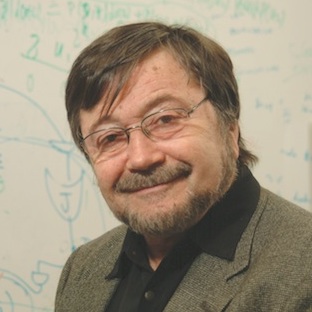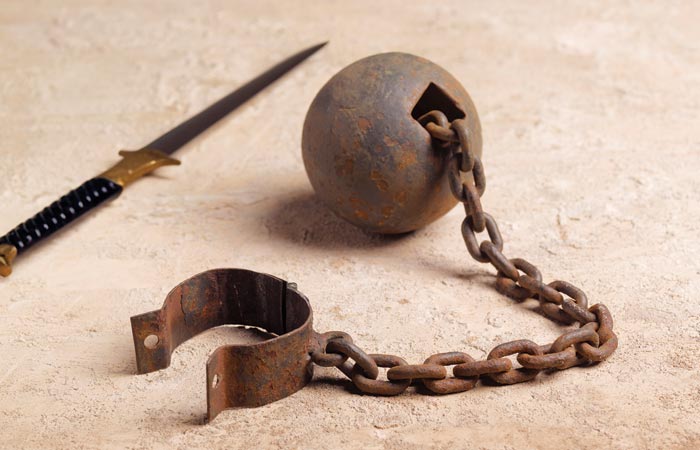Universities, like religions, are often judged not by what they preach but by what they tolerate.
This painful truth came to mind upon reading Neelie Genya Milstein’s op-ed article in these pages, “Protecting Hate at UC Irvine” (May 22, 2009), in which she describes the atmosphere at the University of California at Irvine (UCI), where the Muslim Students Union (MSU) celebrated a week-long lynching of Jewish identity under the banner “Israel: The Politics of Genocide.”
“At UCI,” Milstein wrote, “hate is a yearly event that lasts for a week. It isn’t just any hatred. It is hatred directed at me, my friends, my community and my history.”
“You are a Jew; a proud Jew, a proud supporter of Israel. Now you are seen as nothing but a racist murderer on your own campus,” she wrote.
Milstein is not alone. Her frustration is shared by many students and faculty at Irvine. What is happening at UCI is part of a coordinated assault on Jewish identity at campuses across the nation, an assault that threatens to erode the dignity, values and peoplehood of all Jewish students in the generation to come. We must understand its anatomy, for universities hold the key to our future.
UCI has long been a proving ground for a nationally orchestrated Israel-defamation campaign. The combination of a large and highly motivated Muslim student organization, an affluent and supportive Muslim community, a non-confrontational university administration and a divided (what’s new?) Jewish leadership has turned the UCI campus into a veritable petri dish to test the limits of hate, bigotry and intimidation. Pro-Israel students, with the help of organizations like Hillel, StandWithUs and others, have mobilized to reach out to the MSU, but have been unable to temper the rising intensity of their assault. (See Brad Greenberg’s “Quiet War on Campus: Israel Remains Under Attack Despite Fewer Public Protests,” Jewish Journal, Aug. 22, 2008.)
Many Orwellian hyperboles were first tested at UCI, among them: “Genocide in Jenin,” “Zionism is Cancer,” “The World without Israel,” “Ethnic Cleansing in Palestine,” “Holocaust in the Holy Land,” “Israel: The Fourth Reich.” This year, the masters of absurdity upped the ante with mental deformities such as: “Allah is a terrorist” “The Zionist-Jew is a party of Satan,” along with images of Anne Frank in a Palestinian kaffiyeh, blood-drenched Israeli flags and heroic Hamas fighters advancing the cause of peace — all in the prime location on campus, near the flagpoles and the administration building, giving the hate fest the appearance of a university-sponsored event.
Naturally, despite their tireless and honest efforts, university administrators have been powerless to prevent UCI from becoming a national focus of anxieties and expectations. Indeed, on the day the official UCI marquee at the entrance to campus displayed the “Israel-Genocide” sign, I received messages from colleagues as far away as Indiana asking whether California Education Code allows such use of the University of California name. “What next for us?” they asked.
On the other side of the fault line, anti-Israel propagandists have been watching UCI performances thirsting for new ideas and new opportunities for upcoming hate fests on other campuses. I wonder, for example, whether Susan Slyomovics, the director of UCLA Center for Near Eastern Studies, would have mustered the imagination to choreograph her famous Gaza Symposium last Jan. 22 had she not been emboldened by Irvine’s 2005 workshop “A World Without Israel.” For readers who missed Slyomovics’ show, it was described by a foreign diplomat (not Israeli) in the audience as “the dirtiest Israel-bashing and indeed full-fledged anti-Semitic hate fest I have experienced in my two and a half years in this city” (see my column “Dust Over Campus Life: UCLA at a Crossroad,” Feb. 20, 2009).
Likewise, I would speculate that UCLA Chancellor Gene Block is keenly tuned to the happenings at UCI, for he is facing a similar dilemma: How long can a university refrain from confronting obsessed Israel bashers/deniers—bent on stifling debate and trampling campus norms of civil discourse — and still convince the public that students should feel safe and welcome, and their sensitivities respected?
In 2005, in response to faculty complaints over the hate speeches by MSU’s speaker Malik Ali, UCI Vice Chancellor Manuel Gomez wrote that the administration is “legally prohibited from either proscribing or prescribing the content of speech, as long as speakers conform to campus policies and applicable laws.”
This is no longer the current stance of the university. In a recent letter, UCI Chancellor Michael Drake wrote: “We must reject disrespectful and hateful slurs, particularly those based on race, religion, ethnicity, sexuality or any other fundamental aspect of identity…. We reject anti-Semitism. We reject anti-Islamic rhetoric. We reject de-humanizing stereotypes. We embrace dialogue and mutual understanding.”
Theoretically, this is precisely what Milstein requested: “I am not asking the UCI administration to censor the hate speech. I am asking them to denounce this style of rhetoric and displays just as they would denounce campaigns for white supremacy, sexism, or Islamophobia.”
But there is a catch that lies at the core of the issue, which only a few bold university administrators have thus far dared to address. Does the content of “Israel: The Politics of Genocide” fall within Drake’s categories of what “we reject,” or is it deemed to be a commendable model of academic free speech?
Unfortunately, the declarative “we reject anti-Semitism” does not get us closer to answering this question. Iranian President Mahmoud Ahmadinejad and UCI’s MSU have learned to absolve themselves skillfully of charges of anti-Semitism; behold, it is only the “Zionist Jew” who is the Satan, not all Jews. (Imagine Dutch politician Geert Wilders saying: “It is only Sunni Muslims who are morally inferior, not all Muslims.”)
I believe that one of the greatest mistakes Jewish advocacy has made in the past decade has been to argue that anti-Zionism is dangerous because it is a thin cover of anti-Semitism. We should have exposed the immoral character of anti-Zionism in itself and insist that Israel’s statehood be recognized for what it is, a “fundamental aspect of Jewish identity.” As Drake implied in his letter, religion has no monopoly on human sensitivity or group identity.
Drake’s letter does not identify code-breakers, nor does he specify any offenses. It reminds me of the vague anti-terrorism fatwa that American Muslim organizations issued in 2005, a week after the London bombing, which went through a great linguistic effort not to name Bin Laden or Al Qaeda as offenders, and which rendered the fatwa nonbinding. Thus, even if anti-Zionism rhetoric is explicitly recognized as offensive activity at UCI, the MSU will not see itself even remotely involved — naming the offender is essential for reversing the climb in campus temperature.
In 2007, Vice Chancellor Gomez wrote to complaining UCI faculty: “In all honesty, I get dismayed at the fact that even though we have been deeply engaged in creating a safe and dynamic campus community, the attention that continues to be focused on UCI is both distorted and negative.” In fairness to Gomez, the UCI administration has indeed invested a tremendous amount of time, resources and goodwill in efforts to restore civility to the UCI campus. However, the latest MSU carnival proves that there are fundamental limits to what non-confrontational policies can achieve in an academic environment that finds itself attacked by professional, well-funded hate crusaders aiming to test the patience of that environment. The 2009 spectacle made a blatant mockery of everything the administration has labored to develop, including, I worry, the Daniel Pearl Muslim-Jewish Dialogue that UCI hosted in May 2005.
It is time for the university to reassess the way it tolerates the intolerant. Its legal obligation to tolerate that which is wrong does not diminish its moral obligation to point to that which is right.
Judea Pearl is a professor at UCLA and president of the Daniel Pearl Foundation, named after his son. He is a co-editor of “I Am Jewish: Personal Reflections Inspired by the Last Words of Daniel Pearl” (Jewish Lights, 2004).























 More news and opinions than at a Shabbat dinner, right in your inbox.
More news and opinions than at a Shabbat dinner, right in your inbox.